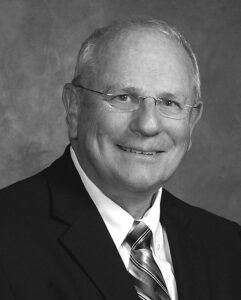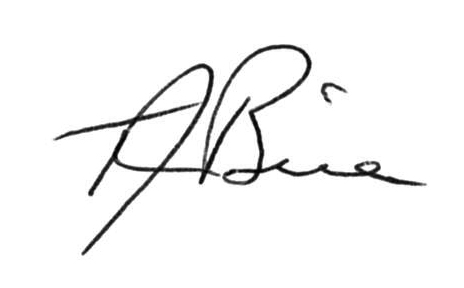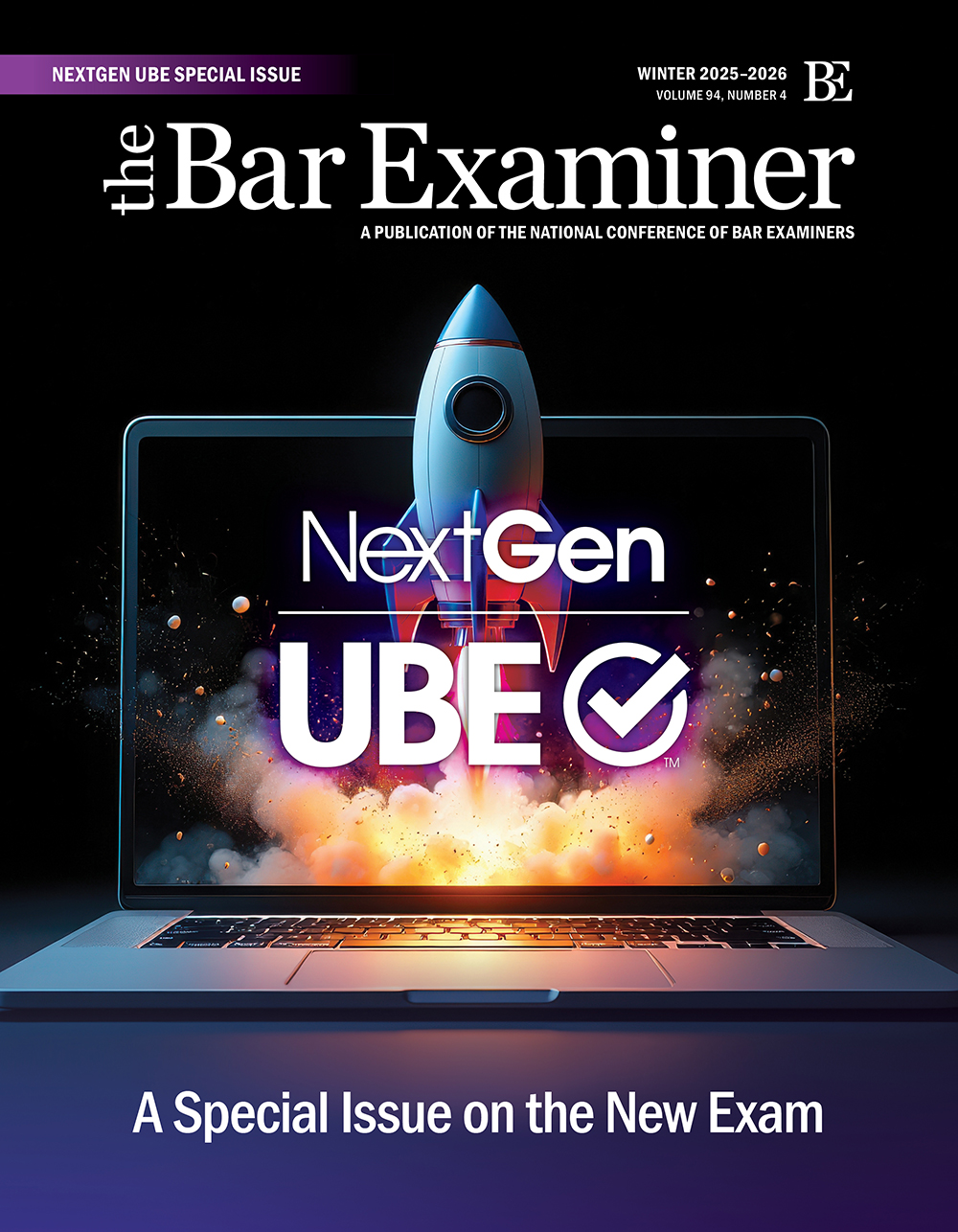This article originally appeared in The Bar Examiner print edition, December 2015 (Vol. 84, No. 4), pp 2–3.
By Hon. Thomas J. Bice NCBE’s corporate bylaws provide that, for NCBE’s policy committees, the chair of the Board of Trustees “shall make all committee appointments . . . in consultation with the president and subject to approval of the Board of Trustees.” Considering that there are nine policy committees within the structure of the organization (in addition to another seven committees we term house committees, whose appointments the chair is also responsible for making according to the bylaws), making appointments to the various committees is both challenging and time-consuming but is essential to the vitality and energy of the organization as a whole.
NCBE’s corporate bylaws provide that, for NCBE’s policy committees, the chair of the Board of Trustees “shall make all committee appointments . . . in consultation with the president and subject to approval of the Board of Trustees.” Considering that there are nine policy committees within the structure of the organization (in addition to another seven committees we term house committees, whose appointments the chair is also responsible for making according to the bylaws), making appointments to the various committees is both challenging and time-consuming but is essential to the vitality and energy of the organization as a whole.
The process of making committee appointments is a positive one. Lists of possible candidates for selection are circulated and reviewed among Board members and committee chairs. Phone calls and numerous e-mails are exchanged vetting candidates suggested for consideration. Backgrounds, bios, histories, affiliations, jurisdictional ties, and many other factors are reviewed and evaluated. Input from NCBE staff and the current chair of the respective committee is sought and weighed. More often than not, there are more highly qualified persons eligible for committee appointment than there are positions available to be filled. At that point, the discretion and judgment of the NCBE chair becomes determinative of committee appointments.
Generally, the chairs of the nine policy committees are NCBE trustees or former Board members, all of whom bring a solid vision and a considerable level of experience to the committees. The chairs of the policy committees report to the Board of Trustees at its quarterly meetings. All committee members are appointed for a one-year term, after which they may be reappointed if determined to still be eligible or are replaced by a newly appointed successor. Some committees have long-standing members, and the resulting combination of old and new members in any given year provides a stimulating mix of experience and energy that is greatly beneficial to the work of these committees.
What I found so impressive as I deliberated over committee appointments was the broad range of experience and professionalism represented by those under consideration. In the final analysis, after appointments are made, the high level of competence and knowledge that is brought to the work of the committees is evident.
The current makeup of the nine policy committees includes 79 members with 41 jurisdictions represented. This group includes state Supreme Court justices and judges, practitioners at the highest level, bar admission administrators and staff, and current and former bar examiners. Further, the committees are intended to be diverse and gender balanced. Both large and small jurisdictions are represented in the committee makeup, and consideration is given to geographical balance. Each committee is staffed by an NCBE staff person.
In addition to the 9 policy committees, there are 10 drafting committees appointed by NCBE’s president whose work is to prepare, edit, vet, and submit questions and model answers for consideration for each of NCBE’s four tests. (There is one committee each for the MEE, MPT, and MPRE; and one committee for each of the seven MBE topics.) Among the drafting committees, there are 58 members with 27 different jurisdictions represented. Again, these committees are intentionally diverse and composed of professionals with differing experiences within the legal field: judges, both state and federal; law school professors and deans; and legal practitioners with specific expertise in a variety of given areas. The work of the drafting committees is coordinated by an NCBE staff person.
As I was working through the process of arriving at committee assignments, several noteworthy points quickly became very evident to me. Those appointed to the various committees are exceptionally well qualified and excelling professionally. Also, their commitment to the legal profession is unmistakable. These are true professionals who demonstrate a sincere desire to maintain the integrity and competency of our legal system.
Another very evident factor is that those under consideration are hard workers and are willing to accept responsibility for the bar examination process. NCBE committee work is challenging and requires a significant time investment for those involved. The work done by the committees is conducted year-round; in addition, policy committees meet in person once or twice per year, with additional conference calls and the regular exchange of e-mails being the norm. The same commitment applies to the drafting committees, which meet twice per year (the MPRE drafting committee has an additional third meeting per year), as they undertake the endless and very demanding process of producing quality test materials.
Committee involvement requires commitment and a willingness to work. But above all, what impressed me as I was making committee appointments was that, for the most part, all of those under consideration were volunteers. Modest honorariums are provided to drafting committee members, but for the most part, those serving on NCBE’s committees and its Board of Trustees are professionals who volunteer their time and talents to the process of bar examining and, in a larger sense, to the continued professionalism and high standards of the legal profession. The structure of NCBE’s committees, thanks to the breadth of professional expertise and the strong work ethic of those involved, is indeed strong and viable.
Best regards to all.
Sincerely,

Hon. Thomas J. Bice
Contact us to request a pdf file of the original article as it appeared in the print edition.







